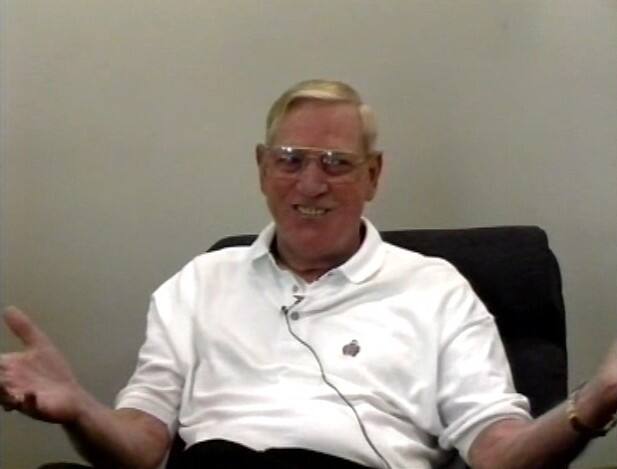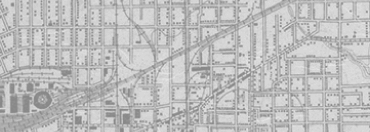


Back
Aubrey Rike Oral History
Videotaped oral history interview with Aubrey Rike. An ambulance driver for Oneal Funeral Home, Rike was the last person to see President Kennedy's body in Dallas before it was taken to Washington, D.C. Moments before the assassination, Rike picked up an epileptic seizure victim in Dealey Plaza. Interview conducted at The Sixth Floor Museum at Dealey Plaza on September 26, 2001 by Bob Porter and Stephen Fagin. The interview is one hour and fifty-seven minutes long.
Aubrey Rike Oral History
09/26/2001
Hi-8 videotape
117 Minutes
Oral History Collection/The Sixth Floor Museum at Dealey Plaza
2001.001.0016
At the request of the Secret Service, Vernon Oneal, the head of the Oneal Funeral Home, drove to Parkland Hospital with the firm's best casket. Oneal, Rike and McGuire were then left behind when Secret Service agents commandeered the funeral home's hearse to drive the president’s body to the airport. Another Oneal employee had to drive to Parkland, pick them up and take them to Love Field to retrieve the hearse which, as of 2011, was owned by a car collector in Arizona. - Gary Mack, Curator
Mr. Rike passed away on April 22, 2010. His autobiography, At the Door of Memory: Aubrey Rike and the Assassination of President Kennedy, was published by JFK Lancer Productions in 2008. - Stephen Fagin, Curator
Six minutes before the assassination, Mr. Rike and Mr. McGuire picked up Jerry Belknap in Dealey Plaza and took him to Parkland Hospital. Mr. Belknap, a part-time mail room employee at The Dallas Morning News, had fainted across from the Texas School Book Depository. He arrived at Parkland Hospital just before President Kennedy and Governor Connally were admitted. After noticing the frantic activity in the emergency rooms, and feeling much better, Mr. Belknap declined further treatment and soon checked out. These events led to some long-discredited conspiracy theories that his actions were faked to draw attention away from the Depository while the real assassins entered without being noticed. - Gary Mack, Curator

Aubrey Rike Oral History
Videotaped oral history interview with Aubrey Rike. An ambulance driver for Oneal Funeral Home, Rike was the last person to see President Kennedy's body in Dallas before it was taken to Washington, D.C. Moments before the assassination, Rike picked up an epileptic seizure victim in Dealey Plaza. Interview conducted at The Sixth Floor Museum at Dealey Plaza on September 26, 2001 by Bob Porter and Stephen Fagin. The interview is one hour and fifty-seven minutes long.
Aubrey Rike Oral History
09/26/2001
Autopsy
Oral histories
Ruby, Jack
Tippit, J.D.
Rike, Aubrey
Parkland Hospital
Oneal Funeral Home
Dallas
Parkland Memorial Hospital (OHC)
Hi-8 videotape
117 Minutes
Oral History Collection/The Sixth Floor Museum at Dealey Plaza
2001.001.0016
At the request of the Secret Service, Vernon Oneal, the head of the Oneal Funeral Home, drove to Parkland Hospital with the firm's best casket. Oneal, Rike and McGuire were then left behind when Secret Service agents commandeered the funeral home's hearse to drive the president’s body to the airport. Another Oneal employee had to drive to Parkland, pick them up and take them to Love Field to retrieve the hearse which, as of 2011, was owned by a car collector in Arizona. - Gary Mack, Curator
Mr. Rike passed away on April 22, 2010. His autobiography, At the Door of Memory: Aubrey Rike and the Assassination of President Kennedy, was published by JFK Lancer Productions in 2008. - Stephen Fagin, Curator
Six minutes before the assassination, Mr. Rike and Mr. McGuire picked up Jerry Belknap in Dealey Plaza and took him to Parkland Hospital. Mr. Belknap, a part-time mail room employee at The Dallas Morning News, had fainted across from the Texas School Book Depository. He arrived at Parkland Hospital just before President Kennedy and Governor Connally were admitted. After noticing the frantic activity in the emergency rooms, and feeling much better, Mr. Belknap declined further treatment and soon checked out. These events led to some long-discredited conspiracy theories that his actions were faked to draw attention away from the Depository while the real assassins entered without being noticed. - Gary Mack, Curator









